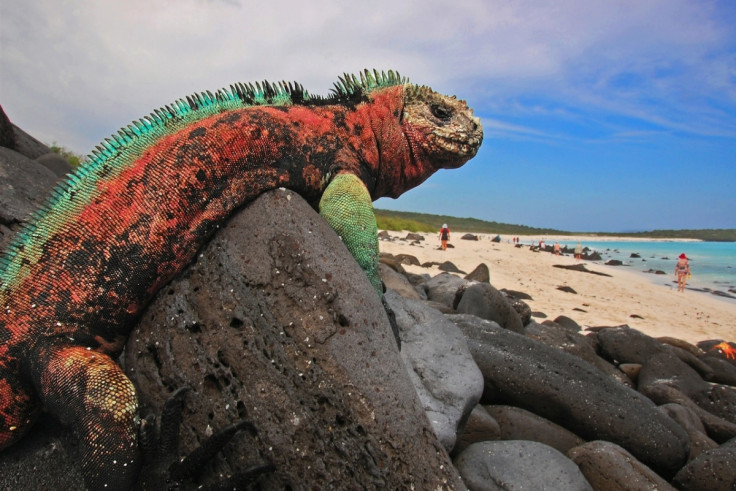Darwin Pulled Iguana Tails and Rode Giant Tortoises on Galapagos Because of 'Island Tameness'

Charles Darwin's theory of why animals living on islands are tamer than their mainland counterparts has been proven in a study.
While visiting the Galapagos Islands, Darwin rode giant tortoises, pulled iguana tails and prodded birds with his gun – none of which made the animals flee in fear.
In his Journal of Researches, he wrote: "I watched one for a long time, till half its body was buried; I then walked up and pulled it by the tail; at this it was greatly astonished, and soon shuffled up to see what was the matter; and then stared me in the face, as much as to say, 'What made you pull my tail?' ".
As a result of their friendly nature, Darwin came up with the idea that animals become tame when they live on remote islands free from predators. However, no one since has tested this theory.
William Cooper Jr of Indiana University – Purdue University, tested the idea of island tameness on 66 species of lizard from around the world, Nature magazine reports.
Published in the Proceedings of the Royal Society B1, Cooper found that island dwellers tended to be tamer than those living on the mainland.

"No one has ever established that it's a general phenomenon in any group," he said. "We showed that for a large prey group — lizards — there really is a significant decline in wariness on islands."
Cooper used old studies and past data on the distance lizards flee when approached by a researcher. They then discarded studies where researchers had pointed at the animal, or approached it faster or slower than a fixed speed. Any involving lizard populations where humans also live were left out too.
They found that humans can get much closer to island-dwelling lizards than mainland species, and that they are more approachable on islands located further from the mainland.
Cooper believes that island ecology overrides any effect of evolutionary history, as even closely related lizard species had different behaviours with humans depending where they lived.
They believe that natural selection would eliminate animals that abandon valuable resources when few or no predators are present.
Commenting on the study, Dan Blumstein, a behavioural biologist at the University of California, said: "Island tameness is an old idea, but there have been few tests of it. This is a needed paper that convincingly shows some of the drivers of island tameness in lizards."
© Copyright IBTimes 2025. All rights reserved.






















